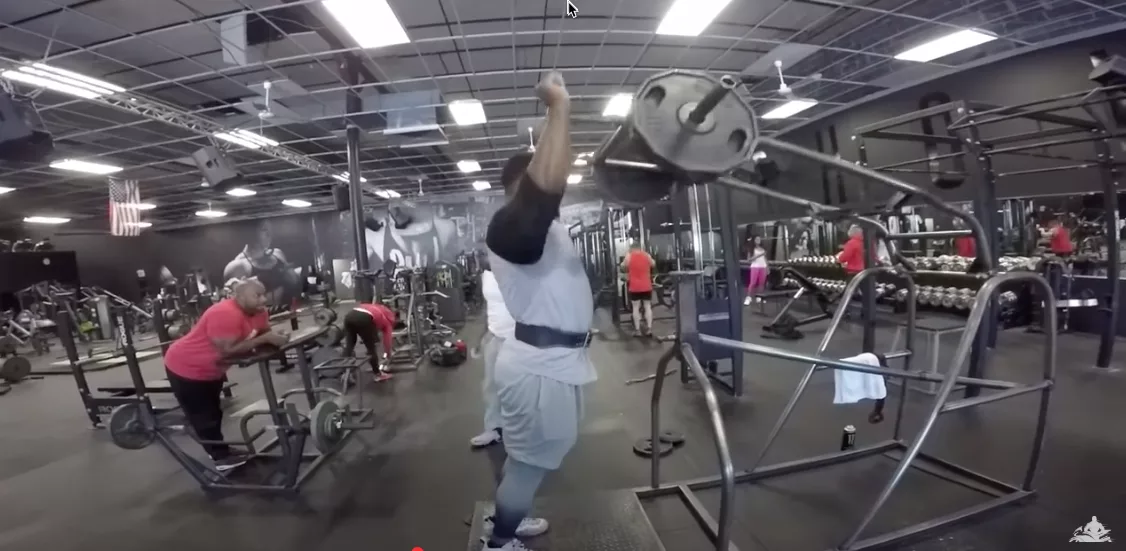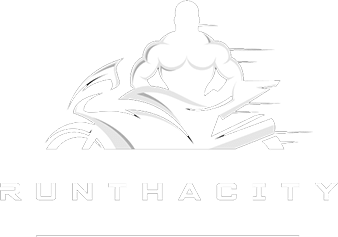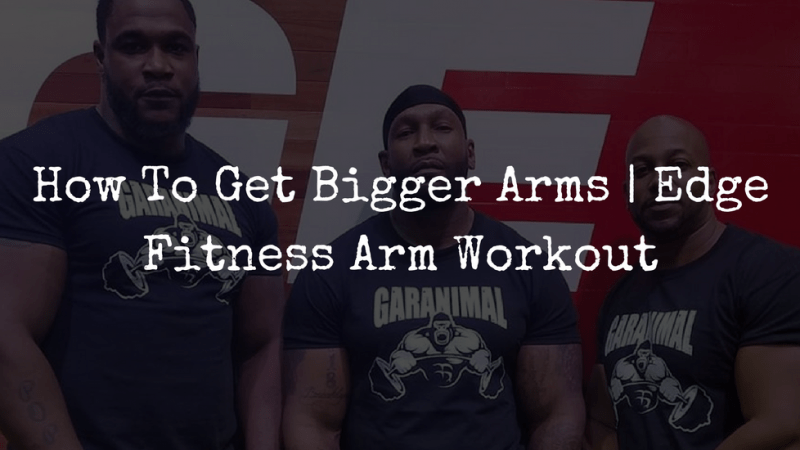“Whatever it is… you double it up.”
That’s how the day started — no warm-up pleasantries, no easing in. Just heavy dumbbells and a mindset carved out of straight grit. This isn’t your average shoulder day. This is RunThaCity volume — the kind of session where Almeen Swint, Mack, and the crew push until there’s nothing left in the tank.
You want results? Then you better come ready to suffer for ‘em. Let’s break down this raw, unfiltered shoulder training session and show you how real work gets done.
Phase 1: Heavy Pressure from the Start
It kicks off with 35kg dumbbells (~70 lbs) — and that’s just the start. No half reps, no soft lifts. Just focused tension and explosive control. You can hear it in the soundtrack, in the iron clanging, and in the breath between each grind.
Almeen Swint sets the pace with controlled aggression, showing that shoulder day isn’t about fancy movements. It’s about volume, pain tolerance, and reps on reps until your delts are screaming.
RunThaCity Volume Protocol
Here’s a breakdown of the RTC Shoulder Protocol from the video:
-
Seated Shoulder Press – Heavy sets with low rest
-
Lateral Raises – High reps, with minimal swing
-
Front Raises – Controlled lift, full range
-
Rear Delt Flys – Isolate and burn out
-
Shoulder Burnout Circuit – No rest between movements, just pure fire
The keyword here is volume. If you’re not uncomfortable, you’re not building anything.
💥 Quote of the session:
“You owe five more—what happened to the other five? Then give me six!”

Almeen Swint Shoulder Day
Mind Over Muscle: No Excuses, Just Execution
What separates a RunThaCity workout from the rest? The mentality.
Almeen, Mack, and the crew don’t tolerate quitting. You’ll hear it in the gym talk:
“You afraid of fat [ __ ]? Then get the other four back.”
That’s the push — not disrespect, but accountability. Real partners don’t let you fold. They drag greatness out of you, set after set.
Even when the juice runs out, they find more. That’s the RunThaCity way.
Small Adjustments, Big Results
Technique matters. As the session grinds on, you’ll catch Almeen Swint adjusting form mid-set:
-
“Put your feet closer.”
-
“Don’t rush the press.”
-
“Stay locked in.”
These micro-corrections keep the tension where it belongs — right on the delts. It’s a reminder: sloppy reps rob gains. Precision under fatigue is what separates real lifters from casual gym-goers.
Final Sets: When It Hurts, That’s When It Counts
“No more juice, right?”
By the end, they’re on fumes — but the bar doesn’t care. The last reps hit different. Shoulders on fire, grip fading, but no one backs down.
Mack digs deep. Almeen leads from the front. No skipping. No hiding.
This is shoulder day done right.
Real Talk, Real Brotherhood
Even through the pain, there’s room for laughs. Gym banter flies:
“I already only got one testicle… so it don’t matter.”
That’s the crew energy. Humor, pain, sweat — all part of the RunThaCity grind. You don’t just lift — you show up, you show out, and you leave better than you came.
Final Thoughts
Shoulder day with Almeen Swint and the RunThaCity crew isn’t about checking a box. It’s about outworking the voice in your head that says stop. It’s about volume, form, and never making excuses.
You want that cap look? You want that strength? Then you better be ready to suffer for it.
Strength is Built, Not Given.
📲 Drop a comment below if you’ve run this shoulder day.
🎥 Tag @RunThaCity in your grind — we repost the hardest workers.
🔗 More training fire → RunThaCity Workouts












